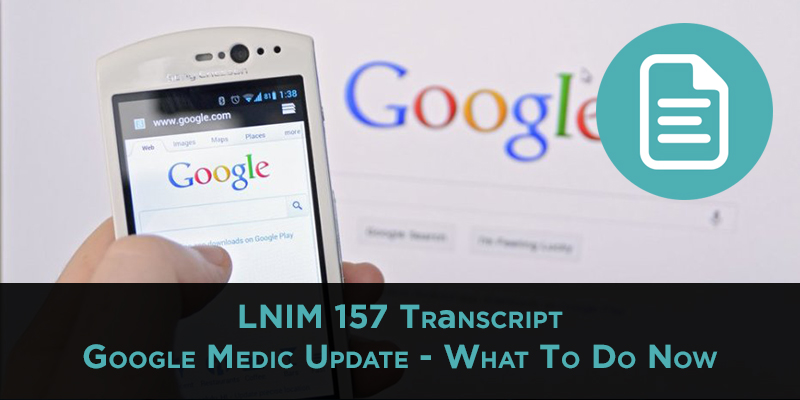(Transcript continued from the Episode 157 show notes and audio podcast)
Starting the Late Night Swimming Pool Experiment
The first topic that I wanted to discuss was this idea that we brought up a couple weeks ago about paying for a swimming pool with Amazon wholesale. I got some feedback and it was pretty interesting. If you missed that episode, what we discussed is the fact that it doesn’t take that much to pay for a swimming pool with part of an online business.
This comes from this idea, this legend, myth, or true story with John Lennon where he wanted a swimming pool but he didn’t have the cash, and so he decided to write a song that day to pay for a swimming pool, because the record label would give him an advance on the song. He wrote a song, I think the story goes that he got $60,000 and put in a swimming pool that day.
It takes more than a day to put in a swimming pool, that’s a whole other podcast, the how long does it take to put in a swimming pool podcast. It takes forever, especially if it rains at all.
As my family has been discussing this idea of putting in a swimming pool, it made me think, “Can you pay for a swimming pool with internet marketing?” It’s an interesting question, because a lot of people get into internet marketing because they want extra money for something.
Sometimes people want to grow a full time online business to leave their day job or pursue the work that they love, but a lot of times they’re wanting to make up the difference between the amount of money they have from their current job and what they feel like they want or need to have for a car payment, or medical bills, or maybe a swimming pool.
The question was, “Can you do that with Amazon wholesale?” like we’ve been talking about for the last couple of weeks. The answer is sure, you just need to do a little math. We were going to say you need $500 a month, but let’s use an even more round number, let’s say you need $500 a month in a pool payment, but in order to get that after taxes you really need to make $1,000 a month.
Let’s say, just for round numbers here, you’re going to give half of your money to taxes, Uncle Sam. You need to have a revenue situation with your Amazon business that generates about $1,000 a month so that you can keep $500 and make a pool payment every month of $500.
A $500 pool payment at today’s interest rates will easily get you a $60,000 to $70,000 pool, so you should be good to go with $500 a month for your pool payment. In order to make that payment, we need to have a profit of $1,000 a month before taxes from our Amazon wholesale business.
We had talked previously that a typical Amazon profit margin – the amount of money that you should expect to make, the percentage of money that you should expect to make – is about 20%. Really what it means is, if you’re really going to target 20% and hit that, which is not easy to do (and we can talk about that in a little bit), then you need to sell on Amazon about $5,000 worth of stuff every month.
You can do that math; if you take $5,000 and divide it by 30, that means on Amazon you need to be selling about $166 worth of stuff in a day. If you’re selling $20 or $25 items, it means you’re selling five to eight items a day. Not a big deal, seems like.
The question is can you do that and maintain this 20% margin and pay for your swimming pool? If you back that up one step further, in order to sell that inventory, first you’re going to have to get that inventory to Amazon. You should figure that probably you’re going to pay, let’s say 40% of your inventory is going to be cost of goods sold, so you need to be buying about $2,000 a month in inventory that you’re sending in to Amazon.
This is a really simple thing. You buy $2,000 worth of stuff, you send it in to Amazon, it sells for about $5,000 on Amazon, you keep $1,000, you give half to the government and you pay for your pool with the other half. That’s what we’re going to try to do. That’s what we talked about and I think those are good numbers for this experiment.
The question is can you actually do that if you’re only going to work on that 30 minutes a day? If that’s all you’re going to do, if you’re going to work on it 30 minutes a day, can you really do that?
We’re going to do an experiment. I’m going to see if I can just work on that for 30 minutes a day for the rest of the year. I have a little egg timer. Every day I’m going to find time to turn over the egg timer and I’m going to work on the Amazon FBA business for 30 minutes. When the egg timer runs out, I’m going to stop, more or less.
I probably won’t get to it every day and some days I may work a little more than 30 minutes, but to be honest with you it’s going to be a struggle for me to even work on it that much. The question is can I get to that level of revenue by the end of the year just doing that for 30 minutes a day.
For me, I know from doing this that an even better question is can I reach that level of margin? I am absolutely certain, without any question at all, that I can definitely get to that level of revenue. It’s really easy to buy things and send them into Amazon and sell $5,000 a month of stuff. The question is can you do that and do it in a way where you’re making 20% profit margin. That’s the really hard part and that’s the part we’re going to talk about.
I’m going to do this and I’m going to give you periodic reports. Every couple weeks I’ll let you know what’s going on. Two weeks from now I’ll give you an update on this. We’re going to call this the Late Night Swimming Pool Experiment and we’re going to see how it goes. Stay tuned for that. That’s going to be really interesting.
If you have questions about Amazon FBA wholesale, now is the time. Go to LateNightIM.com/feedback or send me an email to [email protected] to ask me your questions. We’ll be sure to answer them right here on the show.
All About the Google Medic Update
Our main topic for today is this Google Medic update. As these updates often are, the Google Medic update was first reported by Barry Schwartz over at SEO Roundtable. He is like the guru reporter SEO guy. If you’ve never looked at SEOroundtable.com, I definitely recommend Barry. He has lots of good things to say. In this case, as is often the case, he was the first to notice this and report this.
What they do over there is they track rankings of a bunch of websites and they can detect when website rankings are going up or down, so sometimes they can sniff out these updates even before Google mentions them. That was the case here. In fact, he reported it before Google ever even mentioned it. Then he immediately surveyed a bunch of websites that were impacted and looked at the content that was impacted.
Of the people that he talked to and the data that they had, they found out that almost half of the sites that were impacted had something to do with either your money or your life, YMYL sites is what they call them in Google. It’s these sites that are health related. That’s why they call it the Medic update, because 40% or more of the sites that were impacted by this update were health related. A bunch of sites that were finance related were also impacted. These are sites that deal with your money or your life.
The idea, we think now after a couple of months, is that what Google was really targeting was sites that rely heavily on EAT. For those of you that have been in search engine optimization for a long time, you know that EAT is Google’s acronym for Expertise, Authoritativeness, and Trustworthiness. It stands to reason that if you don’t have those things, you probably shouldn’t be giving medical advice.
Why would Google want to do this? Why would Google want to seek out websites that don’t have good EAT and push them down in the rankings? Here’s the reason why. As we’ve discussed before on the podcast, Google makes money from selling ads. In fact, most of the money that Google makes comes from its ad network.
If Google is making money selling ads, they’re selling those ads, not exclusively but mostly, on their search engine platform. That works for them because they are the de facto standard in search engines.
Yes, there’s Bing, DuckDuckGo, and Yahoo, which Bing and Yahoo are essentially the same thing, but when you go to search for something on the internet, 99 times out of 100, if you surveyed 100 random people they would tell you that if they know what search engine they’re going to, they’re going to Google. The exception is if they have a Windows machine, and they don’t know any different, they’re going to Bing because they don’t know the difference and they’re not a savvy computer user.
Most users that choose a search engine choose Google. In fact, Google is so popular that it’s its own verb. We Google things. We don’t search things on the internet, we Google them to find an answer. You know whenever you have your own verb that you’re doing something right.
The way you protect that, if you’re Google, is you make sure that you have absolutely the best possible user experience imaginable. What do users want? They want the answer to whatever question they’re asking. When you go to a search engine, really you’re asking a question. You want to know the answer to where to buy something, or what to do about something, or how to fix something, or a piece of information like how many people live in North Dakota.
Whatever it is, you have a question that you need answered. Google’s job is to find exactly what it is that you think you’re looking for, almost independently of how good you are at typing in the thing you’re searching for. They need to divine your intent, and once they do that they need to give you absolutely the best, most authoritative, and trustworthy information from the best expert out there. EAT; that’s their goal.
Now, if you’re Googling what to do about your grandmother’s colon cancer, it’s really important that they give you authoritative expert advice on that. They have cranked up the volume on that, particularly on medical and financial sites. That’s what the Medic update is.
One of the two questions that I get about this is: Does this mean that I should not start an affiliate site in the medical niche right now, because of this thing? My answer is; Are you able to create EAT in that niche? If you are a DPT or a CPT, a certified physical therapist, and you’re thinking about creating a niche site around physical therapy, I think that’s absolutely fine. You can do that.
You should understand that because part of this is trustworthiness – and trustworthiness is really a proxy, we think, for backlinks to your site – it’s going to take you a while to establish trust in that marketplace. It’s probably going to take you longer to establish trust in the physical therapy niche than it is in the lawnmower niche. If you don’t care about lawnmowers, you don’t have expertise in that, and you don’t want to write website articles about lawnmowers, then I think it’s perfectly fine to start something in the medical niche.
However, if you’re just a person who is looking for an affiliate opportunity and you go over to Clickbank and you find that there are things you can sell regarding plantar fasciitis, and you want to consider starting a site on plantar fasciitis, but you’re not a podiatrist, you don’t know anything about feet, you have no medical credentials, and you have no intention of hiring someone to create authoritative content on that site, then I would say no. I would not get into a medical or financial niche right now, unless you have access to expertise and you’re really committed to creating authoritative content.
This is standard issue SEO advice for all content. You want to have expertise, authority, and trustworthiness in every kind of content that you create. Particularly, if you are in these two niches Google is looking for that, apparently. Many websites have been hammered recently to the tune of tens of thousands or hundreds of thousands of dollars a month in search engine value, the value of the traffic coming to those sites, because in Google’s view they lack the expertise, the authority, and the trustworthiness.
You wonder, how does Google do this? Of course, only Google knows that. Certainly, some of the signals that they’re looking at are now related to machine learning. They have humans evaluating sites and entering that data into databases. Then they use those databases to teach machine learning engines what good websites look like. Those machine learning algorithms are getting smarter and smarter, and Google is giving them a longer leash to go attack things.
My answer to you, if you’re thinking about creating something in a medical or financial niche – let’s say you’re planning on going to FinCon, a great conference, and you’re going to become a financial blogger – it’s going to be a lot easier for you if you have credentials in that space that will help you establish your authority.
The second question that I get is; What do I do if I’ve been affected by this? What can I do to protect myself in this? The obvious answer is you want to bolster your expertise, your authoritativeness, and your trust.
One of the things that you can do is to make sure that you have all of the things on your website that trustworthy websites have. You need to make sure you have a way to contact you. You need to make sure you have all of the disclaimer and privacy policy information, all of the terms of services and legalese that we have always talked about. Google looks at that as a signal of trustworthiness, because serious websites absolutely have that kind of information.
The other thing that you need to do is make sure that you have author bios that reflect whatever expertise or authority you have. For example, if I were going to have an electronic gadget blog, I would definitely want to construct an author bio that made sure that it describes the fact that I have two degrees in electrical engineering, experience with gadgets, and maybe go on about why I’m an expert in the field of gadgets, if that’s really true.
That kind of author bio is important because the way WordPress works, if you’re working with WordPress, each of your articles will show the author and the author name will link to the author bio. You may even want to put a bio at the end of each article that links to your author bio. It’s easy for Google to determine this was written by a particular person, it’s not just a random article on a blog, and this person has credentials and authority.
You’re going to want to link in to your social media profiles and other things that give signals to Google that you’re a real person with expertise and authority. That’s the kind of thing that you’re going to want to do. That’s the second thing, you’re going to want to make sure it’s clear who is writing this and that you have authority.
The other thing that I want you to do in these cases is write what I’m going to call expertly written content. The way that I want you to think about expertly written content is I want you to refer to authoritative websites.
I want you to think about this as if you are writing content for some kind of class paper. If you ever wrote a paper for high school or college, you know that any time you made an assertion you provided data to backup the assertion. In this world, that would be in the form of an outbound link.
If you were to something like, “As is well known, saccharin causes cancer in laboratory rats,” I want you to reference the study that says saccharin causes cancer in laboratory rats with an outbound link. Even if that is obvious to the reader, I still want you to give that outbound link to WebMD or wherever is appropriate, some university research paper, to show that you are using this kind of referential link to authoritative sources because you are in fact an authority. I think that’s a really important thing.
We’re also seeing some secondary things. I think authoritative websites have good scores with regard to their behavior on mobile, because serious websites are mobile responsive, they’re mobile-friendly. They also have good scores with regard to site speed, and good scores with regard to their ad experience. Whenever the page is queried by Google, Google doesn’t see a bunch of ads above the fold, because authoritative websites are not super ad-heavy, they’re worried about user experience.
If you look at this from Google’s perspective, they are trying to deliver the best experience for the user. If the user is looking for a solution to their plantar fasciitis and they come to your website, and the first one-third page is a big honking ad for an ebook they need to buy for $27, that’s probably not the best user experience. They need to get to that later. What they want right up front is the answer to the question that they’re looking for.
Those are the kinds of things that you should be doing in order to establish expertise, authority, and trust.
One of the things in a really good article that The HOTH did is where they summarize a bunch of Barry Schwartz’s analysis. He did a bunch of analysis and he looked at websites and tried to understand of the affected websites which websites were affected least. Design and ad experience were an issue, mobile experience was an issue. The sites that had better ad experience, better mobile experience, better design experience, were affected least.
Also, sites that had better inbound links. Obviously, if you’re getting links from other trusted websites it is an indication that you can also be trusted. I think this kind of link authority, in this particular case, becomes more important than ever. It’s not important in the way that it used to be so much, in that more links is better and you’re just trying to tip the scale in your favor. This is more being interpreted as a signal to Google that these things are important.
Answer to question number one; I would only get into medical and finance websites right now if you’re sure that’s what you want to do and you’re equipped to deal with it. Second thing; I would definitely do the things that I mentioned. All of these good SEO practices, like design practices, ad practices, mobile experience practices, are all very important. Make sure you have a good author profile, good legal disclaimers, good ways for people to contact you. All of these things that create trust. Make sure you’re creating absolutely excellent authoritative content.
One of the things that Schwartz points out, also, is that article length also seems to matter in this case. You want to make sure that you have a length that is appropriate for the question. If someone is Googling ‘what is 2 plus 2,’ the answer is 4 and you don’t need 4,700 words to answer that question. You definitely want to make sure that your articles are comprehensive. We see that page length is still helping in ranking and you want to make sure that you have authoritative content.
With regard to the Google Medic update, you want to focus on EAT, but guess what? This advice, this focus on EAT advice, is absolutely germane to whatever niche you’re in. If you have a website on underwater basket weaving, you absolutely want to have underwater basket weaving expertise, underwater basket weaving authority, and underwater basket weaving trustworthiness. If you’re a former Navy scuba diver who participated on the U.S. Olympic underwater basket weaving team, that’s going to be some good authoritativeness with which you can build trust. You’re going to want to have those sorts of things.
I hope that helps. I hope that answers some of your questions about this Google Medic algorithm. If you were impacted by the Google Medic algorithm and you have questions, or you want to tell me about your experience, what you’re doing to correct it, or get some advice, hit me at [email protected] and I’d love to talk to you about that.
Wrapping Things Up…
That wraps it up for this week. Tonight I’m going to spend 30 minutes trying to buy some stuff for Amazon FBA wholesale, and I’m going to tell you all about what I get done between now and next week, next week. Look forward to that. We’ll have lots more fun things in addition, we’re not going to just talk about Amazon FBA wholesale. Every week or two I’m going to try to give you a little update on the swimming pool experiment.
Talk to you soon…













